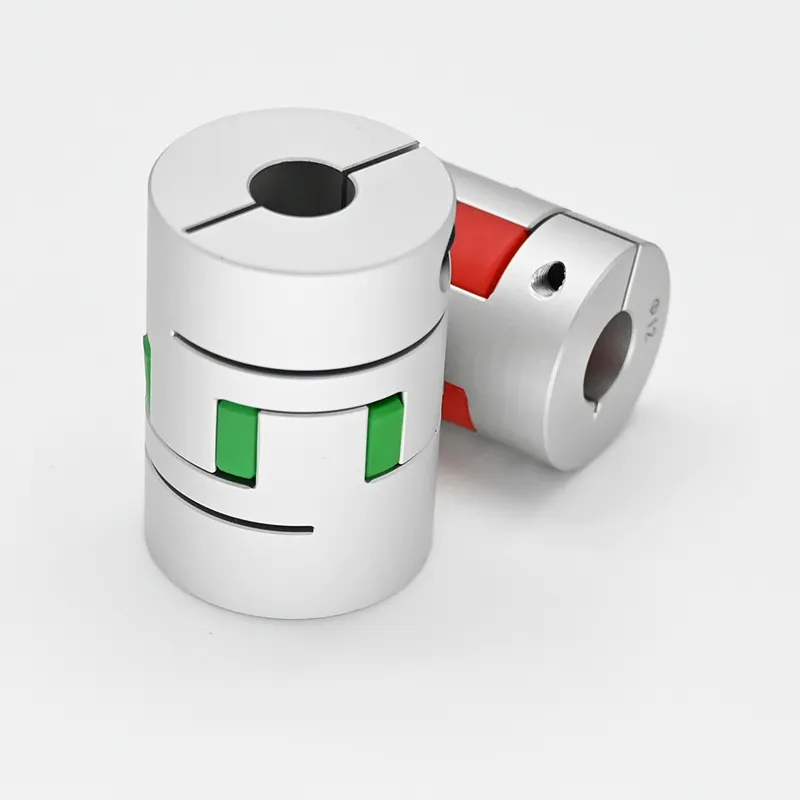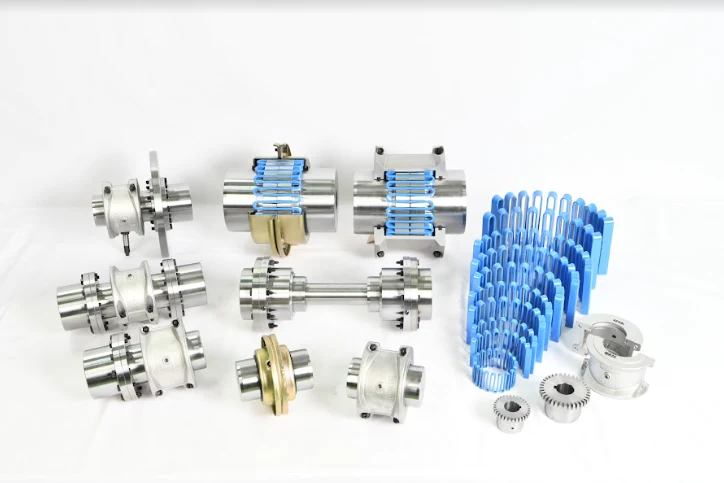Product Description
Shaft Coupling Adapter Stainless Steel High Speed Industrial Step Down Up For Power Transmission Parts Square Rigid High Quality Best Sales Connector
shaft coupling adapter
Shaft Adapters are designed to modify, extend or repair an existing shaft and provide a fully machineable male output shaft with minimum effort and expense. Standard keyways provide added torque capacity and fixed shaft phasing.
EPT Rigid Shaft Couplings & Shaft Adapters are designed to join shafts of different sizes and configurations, extend shafts, and provide different mating options. Allowing drive system modifications without requiring major redesigns and replacement shafts, they are available in various configurations made from steel, stainless steel, aluminum, and brass.
Suitable for use with pumps, mixers, packaging machinery, conveyors, and related equipment, CHINAMFG Rigid Shaft Couplings are available in one-, two-, and three-piece designs with or without keyways. The shaft Adapters are offered in step-up and -down configurations with or without keyways and shaft extensions can be round, square, hex, D, threaded, keyed, and tapered.
A shaft coupling adapter is a mechanical device used to connect 2 shafts together at their ends. The adapter is designed to provide a secure and precise connection between the 2 shafts, while accommodating any misalignment or angular offset between them. Some common applications of shaft coupling adapters include:
1. Machinery: Shaft coupling adapters are commonly used in machinery to connect different types of equipment, such as motors, pumps, and gears. They provide a flexible and reliable connection between the 2 shafts, allowing for smooth and efficient operation.
2. Robotics: Shaft coupling adapters are used in robotics to connect different motors and actuators together. They provide a precise and accurate connection that can accommodate any angular misalignment or offset between the 2 shafts.
3. Automotive: Shaft coupling adapters are used in automotive applications to connect different components, such as the engine and transmission. They provide a secure and reliable connection that can withstand automotive applications’ high loads and stresses.
4. Marine: Shaft coupling adapters are used in marine applications to connect components such as the engine and propeller. They provide a strong, durable connection that can withstand the harsh marine environment.
5. Aerospace: Shaft coupling adapters are used in aerospace applications to connect components such as the engine and gearbox. They provide a precise and reliable connection that can withstand the extreme conditions of space and high-altitude flight.
In summary, shaft coupling adapters are used to connect 2 shafts together at their ends. They are commonly used in machinery, robotics, automotive, marine, and aerospace applications to provide a flexible, reliable, and precise connection between different components. Shaft coupling adapters are designed to accommodate any misalignment or angular offset between the 2 shafts, and can be customized to meet the specific requirements of different applications.
/* January 22, 2571 19:08:37 */!function(){function s(e,r){var a,o={};try{e&&e.split(“,”).forEach(function(e,t){e&&(a=e.match(/(.*?):(.*)$/))&&1

Real-World Examples of Successful Industrial Coupling Applications
Industrial couplings are essential components in various machinery and equipment across different industries. Their versatility, reliability, and ability to handle diverse operating conditions have led to numerous successful applications. Here are some real-world examples of successful industrial coupling applications:
- Pumps and Compressors: In the oil and gas industry, centrifugal pumps and compressors are used for fluid transportation and compression. Gear couplings are commonly employed in these applications due to their high torque capacity and ability to handle misalignment caused by thermal expansion. They ensure reliable power transmission and efficient operation of critical equipment in harsh environments.
- Steel Industry: The steel manufacturing process involves heavy machinery subjected to high torque and intermittent loads. Grid couplings are extensively used in steel rolling mills to connect the motors and rolling stands. Their torsional flexibility helps dampen shocks and vibrations during the rolling process, ensuring precision and reducing wear on the equipment.
- Pulp and Paper Processing: In the pulp and paper industry, large rotary drums and rolls require smooth and reliable power transmission. Disc couplings are commonly used in these applications due to their ability to handle misalignment and high speeds. They ensure precise control during paper manufacturing processes, resulting in consistent product quality.
- Power Generation: Power plants rely on large turbines, generators, and compressors that require efficient power transmission. Diaphragm couplings are well-suited for such high-power applications due to their torsional stiffness and ability to handle misalignment. They provide smooth torque transmission and help maintain precise alignment, enhancing the overall efficiency of power generation systems.
- Automotive Industry: The automotive industry utilizes various types of couplings for different applications. Universal joints are commonly used in drive shafts, enabling power transmission between the engine and wheels while allowing for movement due to suspension and steering. Additionally, elastomeric couplings are employed in engine-driven accessories, such as water pumps and power steering systems, to reduce vibrations and noise.
- Marine Propulsion: In marine applications, where space and weight are critical considerations, flexible couplings play a vital role in connecting the engine to the propeller shaft. These couplings accommodate misalignment caused by hull deflection and vibration, ensuring smooth and efficient propulsion while reducing stress on the drivetrain.
- Mining Equipment: Mining operations involve heavy-duty machinery operating in challenging conditions. Fluid couplings are commonly used in conveyors, crushers, and draglines to start and control the speed of large motors while providing overload protection. These couplings protect the machinery from excessive starting torque and shock loads, enhancing their longevity and reducing downtime.
These examples illustrate the widespread use and success of industrial couplings across diverse industries. The careful selection of the appropriate coupling type for each application ensures reliable power transmission, reduced downtime, and improved overall system performance.

Specific Couplings Designed for High-Temperature or Corrosive Environments
Yes, there are specific couplings designed to operate in high-temperature or corrosive environments. These specialized couplings are constructed using materials and designs that can withstand extreme conditions without compromising performance. Here are some examples of couplings tailored for such environments:
- High-Temperature Couplings: In applications where machinery operates at elevated temperatures, standard couplings made of conventional materials may not be suitable due to their limited thermal resistance. High-temperature couplings are engineered with materials like heat-resistant alloys or ceramics that can withstand extreme heat without degrading or losing their mechanical properties. These couplings are often used in industries such as steel manufacturing, glass production, and aerospace, where the equipment encounters high temperatures during normal operation.
- Corrosion-Resistant Couplings: Industries dealing with corrosive substances or harsh environments require couplings that can resist chemical attack and degradation. Corrosion-resistant couplings are typically made of stainless steel or other alloys with excellent corrosion resistance properties. These couplings protect against the effects of acids, alkaline solutions, and other corrosive elements, ensuring a longer service life and reliable operation. They are commonly used in chemical processing, petrochemical, and marine applications.
- Composite Couplings: Composite materials can offer a combination of properties that make them suitable for challenging environments. For instance, fiber-reinforced composite couplings can provide high strength, lightweight, and resistance to both high temperatures and corrosive substances. These couplings find applications in aerospace, automotive, and other industries where weight reduction and durability are crucial factors.
- Non-Metallic Couplings: Non-metallic couplings made of materials like plastic or reinforced polymers offer excellent resistance to corrosion, chemicals, and extreme temperatures. These couplings are often used in food and beverage processing, pharmaceuticals, and other industries where hygienic conditions and resistance to aggressive substances are essential.
It is crucial to select the appropriate coupling that matches the specific requirements of the operating environment. Using standard couplings in high-temperature or corrosive settings can lead to premature failure, increased maintenance, and safety risks. By opting for couplings designed explicitly for such conditions, industries can ensure the reliability and longevity of their equipment and maintain optimal performance even in the most challenging environments.

Advantages and Disadvantages of Using Flexible Couplings in Industrial Setups
Flexible couplings offer several advantages in industrial setups, but they also come with some disadvantages. Here’s a detailed overview of both aspects:
Advantages:
- Misalignment Compensation: Flexible couplings can compensate for various types of misalignment, including angular, axial, and parallel misalignment. This capability reduces stress on connected machinery, bearings, and shafts, resulting in extended component life and improved reliability.
- Vibration Dampening: Flexible couplings can absorb and dampen vibrations, preventing them from being transmitted to other parts of the machinery or equipment. This feature helps reduce noise and minimizes wear and tear on the system, leading to smoother operation and decreased maintenance requirements.
- Shock Absorption: Some types of flexible couplings, such as grid and elastomeric couplings, offer excellent shock absorption properties. They can handle sudden load changes and impacts, making them suitable for applications with varying loads or in environments prone to shock forces.
- Torsional Flexibility: Flexible couplings provide torsional flexibility, allowing for slight angular displacement between connected shafts. This flexibility helps prevent torsional vibrations and mechanical resonance, improving the overall stability and performance of the machinery.
- Easy Installation and Maintenance: Most flexible couplings are relatively easy to install and require minimal maintenance. They often do not need lubrication, reducing maintenance efforts and downtime, which can result in cost savings.
- Cost-Effective Solution: Flexible couplings are often more cost-effective than rigid couplings, especially in applications where misalignment compensation and shock absorption are required. They offer a balance between performance and affordability.
Disadvantages:
- Backlash: Some flexible couplings introduce a certain amount of backlash or angular play due to their design. In precision applications, this backlash may result in reduced accuracy and positioning errors.
- Lower Torque Capacity: Compared to some rigid couplings, flexible couplings generally have lower torque capacity. In high-torque applications, careful selection is essential to ensure the coupling can handle the required torque without slipping or failing.
- Limitations on High-Speed Applications: Some types of flexible couplings may have limitations in high-speed applications due to factors like balancing requirements or resonance effects.
- Finite Lifespan: Flexible couplings have a finite lifespan and may require periodic replacement, especially in demanding or high-load applications.
When choosing whether to use flexible couplings in an industrial setup, engineers should carefully consider the specific requirements and operating conditions of the application. While flexible couplings offer significant advantages, they may not be suitable for every scenario. Proper selection and regular maintenance of the coupling can ensure optimal performance and extend its lifespan, contributing to the overall efficiency and reliability of the industrial system.


editor by CX 2024-04-25
